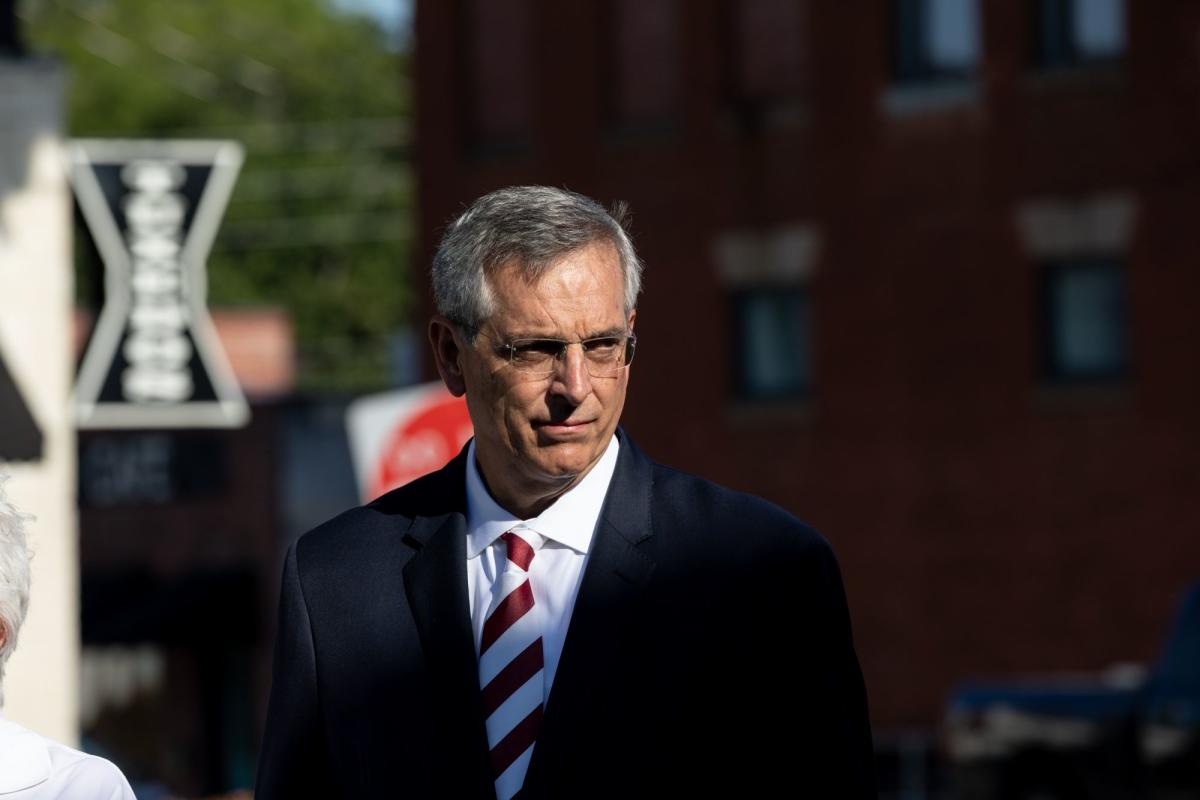
(Bloomberg) — Justice Department Special Counsel John L. “Jack” Smith’s latest subpoena shows the investigation into efforts by former President Donald Trump and his allies to undermine the 2020 election results is before a newer grand jury in place at least through March 2023.
Most Read from Bloomberg
A subpoena received earlier this week by Georgia Secretary of State Brad Raffensperger refers to a different grand jury than the one listed in document requests issued by the special counsel in November. Grand jury #22-5, which was impaneled May 18 and heard Jan. 6-related evidence through the fall, has expired, according to Lisa Klem, a spokesperson for the federal district court in Washington.
The grand jury cited in the Raffensperger subpoena, #22-7, was impaneled on Sept. 15 for a six-month term, Klem said. That means the latest grand jury connected to the Jan. 6 probe will be active — available to consider evidence and return indictments — well into the new year.
Grand juries operate in secret, but subpoenas provide glimpses behind the scenes. Unlike prosecutors, court staff, and grand jurors, who are prohibited from talking about what happens, subpoenaed individuals typically are allowed to share information about their participation.
The first known subpoenas bearing Smith’s name are dated Nov. 22, showing the Jan. 6 investigation pressed ahead after Attorney General Merrick Garland appointed him on Nov. 18. The Raffensperger subpoena is dated Dec. 9. Subpoenas went to state and county officials in battleground states that President Joe Biden won: Arizona, Georgia, Michigan, Nevada, New Mexico, Pennsylvania, and Wisconsin.
Subpoenas viewed by Bloomberg News feature similar requests: for communications with Trump, his campaign, and 19 conservative lawyers and advocates linked to the false claims of widespread voter fraud pushed by Trump and his supporters. The subpoenas were first reported by the Washington Post, AP, and CNN.
Justice Department spokesperson Myron Marlin declined to comment on grand jury matters and the status of Smith’s work. The recent subpoenas are signed by a prosecutor who wasn’t previously linked to Jan. 6 cases — Matthew Burke, a prosecutor formerly with the US attorney’s office in northern Virginia listed in the Raffensperger subpoena as “Assistant Special Counsel.”
Long-running investigations can span multiple grand juries over time, and a single grand jury considers a variety of cases. A criminal probe doesn’t end when a grand jury expires, but it adds a layer of complication. Prosecutors have to reintroduce any earlier evidence they still want to use, which can mean reading witness testimony from transcripts out loud and going over documents with the new jurors.
Smith is also overseeing the criminal investigation into Trump’s post-presidency handling of government records. Trump’s fight with the Justice Department over documents seized from his Mar-a-Lago home yielded new information about the timeline of grand jury activity.
Those disclosures included a May 11 grand jury subpoena for classified material in Trump’s possession, which showed prosecutors were before grand jury #21-9. Klem said that grand jury’s six-month term was set to expire when the court granted a three-month extension on May 6. It eventually did expire, but the Justice Department has made clear the investigation is ongoing.
The Justice Department recently asked a judge to hold Trump in contempt for failing to comply with the May subpoena, according to the Washington Post and CNN. After Trump’s lawyers were sighted at the DC courthouse on Dec. 9 going into US District Chief Judge Beryl Howell’s office suite, Klem issued a rare statement confirming a hearing related to a grand jury matter.
Most Read from Bloomberg Businessweek
©2022 Bloomberg L.P.




